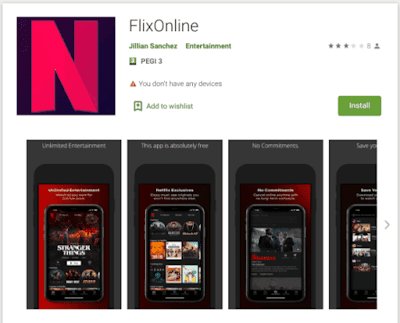Acronis, a global cyberprotection provider, has released
Acronis True Image 2021.
The new release integrates advanced cybersecurity capabilities with
personal backup to create a personal cyberprotection solution for
home users, prosumers, and micro businesses - those under five seats -
around the world.
As
more people stay away from their offices, securing home machines has
never been more important. Despite this, a recent Acronis survey found
nearly half (47%) of remote workers have never received clear guidance
on working from home.
Incorporating cybersecurity
capabilities such as real-time antimalware protection, on-demand
antivirus scans, web filtering, and videoconference protection into
Acronis True Image ensures users have complete cyberprotection.
“As
more people work or attend classes from home, the FBI documents a 400%
increase in cyberattacks because hackers know home systems are not
usually as well-defended as an office,” said Serguei “SB” Beloussov,
founder and CEO of Acronis.
“Backup without cybersecurity is an incomplete option in that situation, as is cybersecurity without backup.
Acronis True Image 2021 delivers the easy, efficient, and secure cyberprotection needed today.”
 |
| At the virtual launch of Acronis True Image 2021
Acronis executives highlighted the three pillars of the all-in-one
solution: backup and recovery, antimalware and antivirus, as well as
easy management. |
"The traditional security perimeter of their offices are not applicable any more because, essentially, everybody is working on
edge devices outside the security perimeter of their companies, " elaborated Stas Protassov, Acronis Technology
President and Co-founder on why remote workers are vulnerable.
"You're not behind the firewall installed
by your security officer. You're potentially quite an attractive target for
attackers."
Threats can be both
internal and external - data can be lost in error, through theft,
hardware failure as well as through cyberattacks. Since backup software
and files are often the targets of cyberattacks to prevent recovery,
backup alone no longer provides suitable protection for users.
Similarly, conventional cybersecurity solutions do not provide the data
protection and recovery capabilities users need, said Acronis.
Relying
on multiple products that were not designed to work together creates
security gaps, is more complex to manage, and is more costly, the
company added.
Acronis True Image 2021 addresses these challenges
by proactively stopping any malware attack and then quickly restoring
affected files. An intuitive interface reduces the complexity of
managing both security and backups.
For the last few years,
Acronis True Image
has been the only personal backup solution with a built-in
anti-ransomware that stops attacks in real-time, while automatically
restoring any affected files. With the launch of
Acronis True Image 2021, those
capabilities are expanded with the addition of the company’s advanced
antimalware technology, which is currently deployed in
Acronis Cyber Protect Cloud.
This
full-stack antimalware uses both behavioural analysis and
signature-based analysis engines for detection, and has been shown by
independent security labs such as
Virus Bulletin and
AV-Test to return a 100% detection rate with zero false positives*.
Features that are new in 2021 include:
-
Real-time protection, driven by artificial intelligence (AI)-enhanced
behavioural heuristics, which stops all malware – including zero-day
attacks**
- On-demand antivirus scans of the full
system or quick scans of at-risk files, either of which can be scheduled
in advance or run immediately
- Web filtering that
automatically blocks Windows users from accessing malicious websites
that harbour malware, disinformation, scams, and phishing attacks
- Videoconference protection prevents hackers and malware injection attacks from exploiting popular apps like
Zoom, Cisco Webex, and
Microsoft Teams
These advanced antimalware capabilities are included with
Advanced and
Premium licenses, and offered as a three-month trial with the
Standard and
Essential licenses.
Acronis True Image 2021
gives individuals and small businesses access to the same protection
technologies relied on by global companies and professional sports
teams. “Cyberprotection is a top priority for
Rahal Letterman Lanigan Racing,” explained Bobby Rahal, co-owner of Rahal Letterman Lanigan Racing.
“When our races were on pause, Acronis continued to provide protection for our team working remotely. Now, with
Acronis True Image, everyone can safeguard their personal data against the worst-case scenario.”
Protassov
said that Acronis also adds additional protection through offering
training on identifying suspicious interactions, monitoring for
unexpected user activities, and encrypting the data from customers that
flows through Acronis.
This
data encryption can be initiated by the client, who provides the
encryption key. "(Acronis cannot) actually decrypt it without you
providing us
with the ability to do so," Protassov said.
Acronis unifies data protection and cybersecurity to deliver integrated,
automated cyberprotection that solves the safety, accessibility, privacy,
authenticity, and security (SAPAS) challenges of the modern
digital world. Its portfolio includes next-generation antivirus, backup,
disaster recovery, and endpoint protection management solutions backed
by AI-based anti-malware and Blockchain-based data authentication
technologies.
Details:
Four editions of
Acronis True Image are available:
Standard, Essential, Advanced and
Premium. One-computer licenses starting at S$82 for
Standard and S$68 for
Essential. Special launch prices for the
Advanced and
Premium licenses
(starting at S$96 and S$137, respectively) are available until November
2020, at which time the full manufacturer's suggested retail price
(MSRP) will go into effect. Under the MSRP guidelines, pricing will
start at S$123 and S$171, respectively.
Acronis recommends that businesses with five or more seats use
Acronis Cyberprotect.
Some functionalities are not available for the Mac but the plan is for feature parity in the long term.
Hashtag: #CyberFit
*Some
security solutions miss some of the malware presented in tests, so they
would be classed as having a detection rate of under 100%.
Additionally, some solutions will claim there is malware present when
there is not. This is called a false positive.
**Zero-day attacks are attacks on vulnerabilities which have just been discovered, ie zero days since discovery. Such attacks are most likely to be successful as the vulnerability has not yet been patched.












